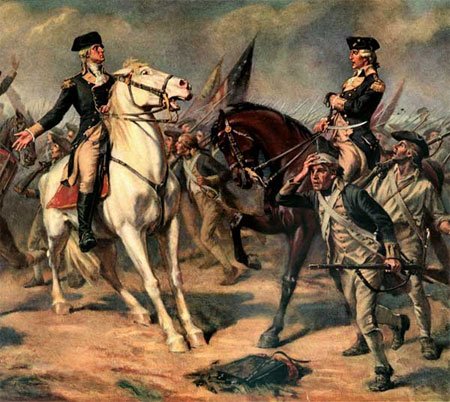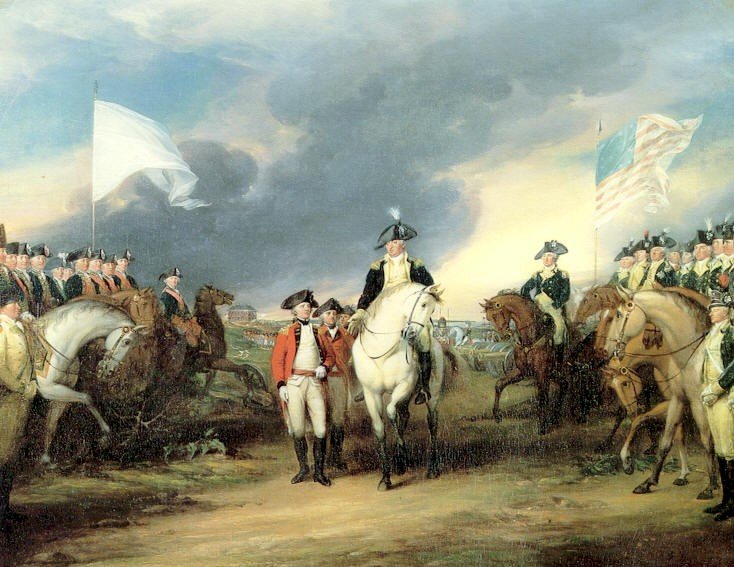The American Revolution was a political change that occurred somewhere around 1765 and 1783 amid which settlers in the Thirteen American Colonies dismisses the British government and privileged, ousted the power of Great Britain, and established the United States of America.
Beginning in 1765, individuals from American pilgrim society dismisses the power of the British Parliament to expense them and to make different laws influencing them without frontier delegates in the administration. Amid the next decade, challenges kept on heightening by pioneers (known as Patriots), as in the Boston Tea Party in 1773, amid which nationalists demolished a relegation of burdened tea from the Parliament-controlled and supported East India Company.
The British reacted by forcing corrective laws on Massachusetts in 1774 known as the Coercive Acts, taking after which Patriots in alternate settlements mobilized behind Massachusetts. In late 1774, the Patriots set up their own particular option government to better facilitate their resistance endeavors against Great Britain, while different pilgrims, known as Loyalists, wanted to stay adjusted to the British Crown.

Strains heightened to the flare-up of battling between Patriot local army and British regulars at Lexington and Concord in April 1775. The contention then formed into a worldwide war, amid which the Patriots (and later their French, Spanish, and Dutch partners) battled the British and Loyalists in what got to be known as the American Revolutionary War (1775–1783). Nationalists in each of the thirteen settlements shaped Provincial Congresses that accepted power from the old frontier governments and smothered Loyalism, and from that point assembled a Continental Army under the authority of General George Washington. The Continental Congress decided King George III's lead to be oppressive and encroaching the settlers' "rights as Englishmen", and pronounced the provinces free and autonomous states in July 1776. The Patriot initiative maintained the political methods of insight of radicalism and republicanism to reject government and nobility, and declared that all men are made equivalent. Congress rejected British proposition obliging fidelity to the government and relinquishment of freedom.
The British were constrained out of Boston in 1776, yet then caught and held New York City for the span of the war. They barricaded the ports and caught different urban areas for brief periods, yet neglected to thrashing Washington's powers. A British armed force was caught at the Battle of Saratoga in late 1777 after a fizzled nationalist attack of Canada, taking after which the French straightforwardly entered the war as partners of the United States. The war later swung to the American South, where the British caught an armed force at South Carolina yet neglected to enroll enough volunteers from Loyalist regular folks to take successful control. A consolidated American–French drive caught a moment British armed force at Yorktown in 1781, successfully finishing the war in the United States. The Treaty of Paris in 1783 formally finished the contention, affirming the new country's total partition from the British Empire. The United States claimed about all the domain east of the Mississippi River and south of the Great Lakes, with the British holding control of Canada and Spain taking Florida.
Among the critical consequences of the upheaval was the making of another Constitution of the United States. The 'Three-Fifths Compromise' permitted the southern slaveholders to unite control and keep up subjugation in America for another eighty years, however the chose government got to be dependable to the will of the general population through the development of voting rights and freedoms over resulting decades.The new Constitution set up a moderately solid elected national government that incorporated an official, a national legal, and a bicameral Congress that spoke to states in the Senate and populace in the House of Representatives.
Thanking You
Ishan Pandey


American revolution was the denial of the autocratic British empire which used colonies to fill their pockets .
Interesting. Skim read and will take a closer look this evening.
Good content,keep it up.